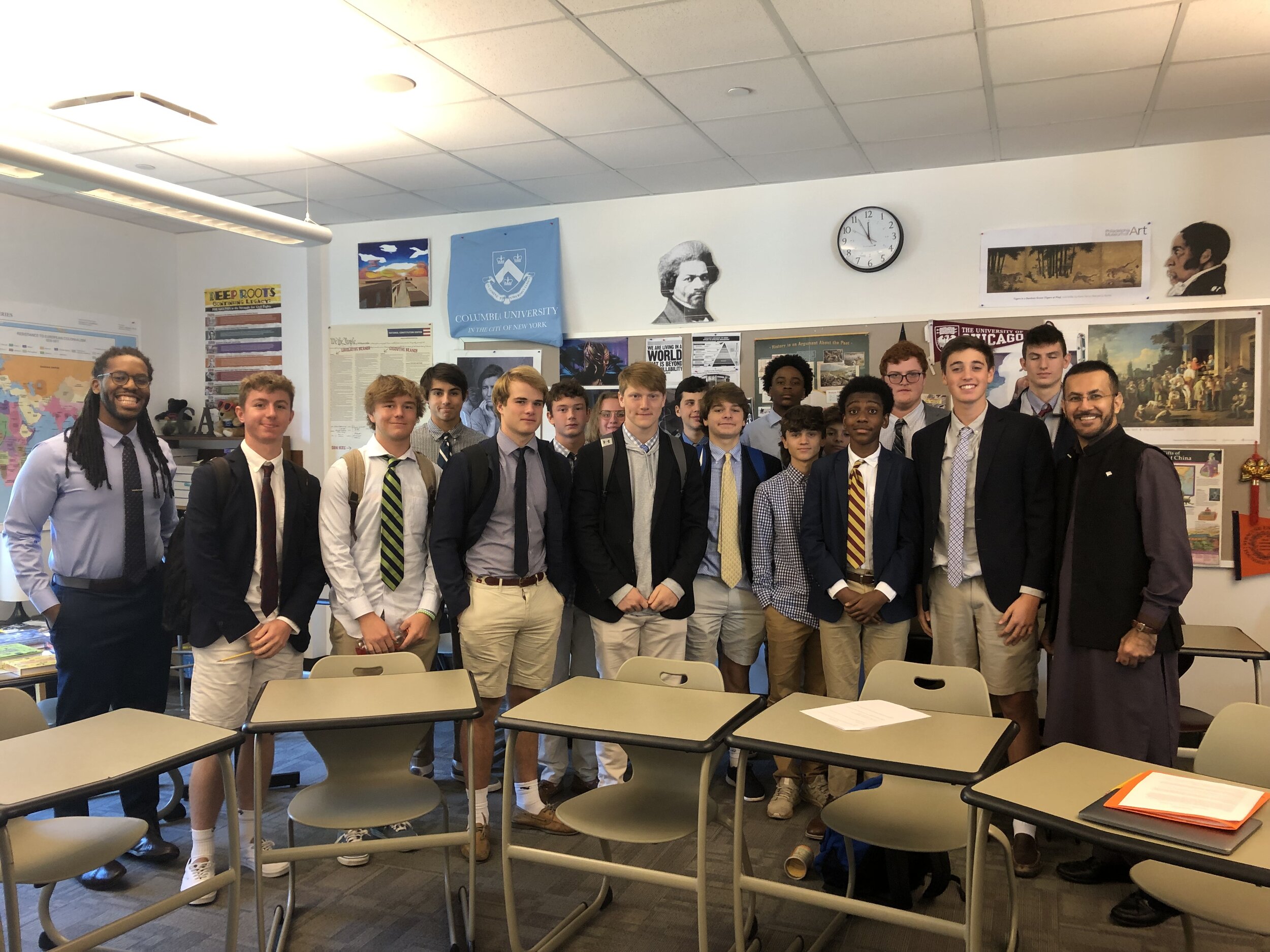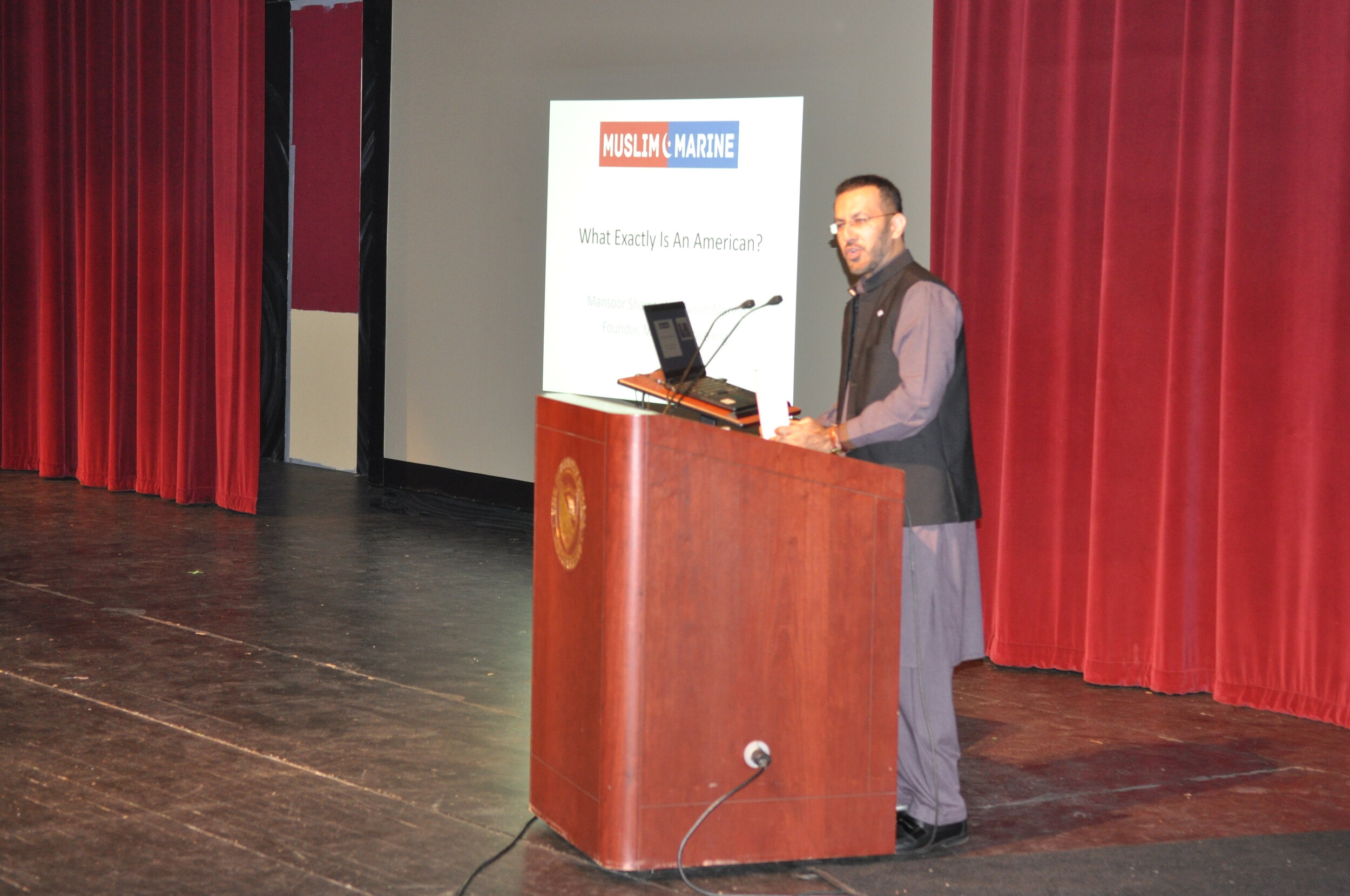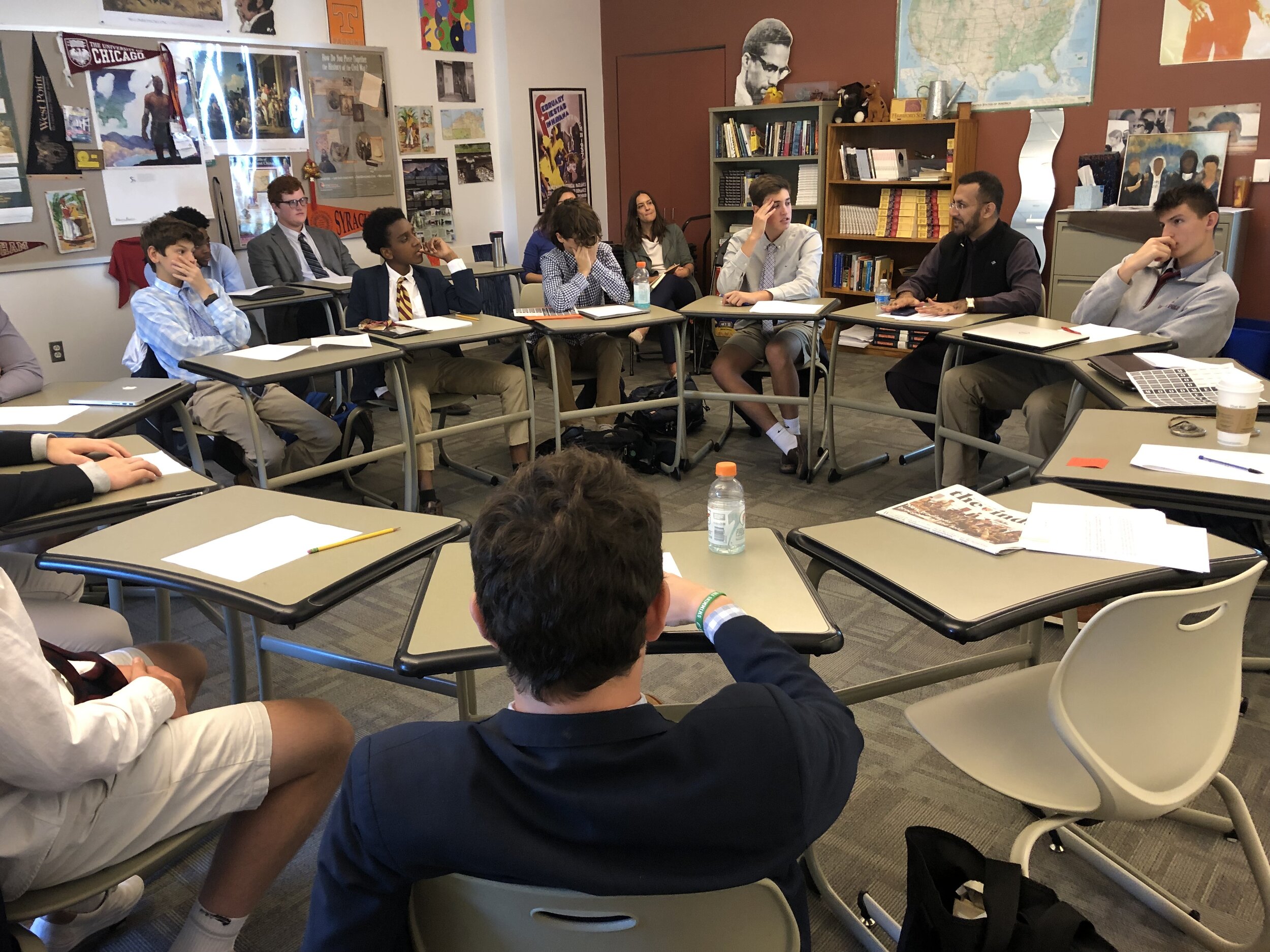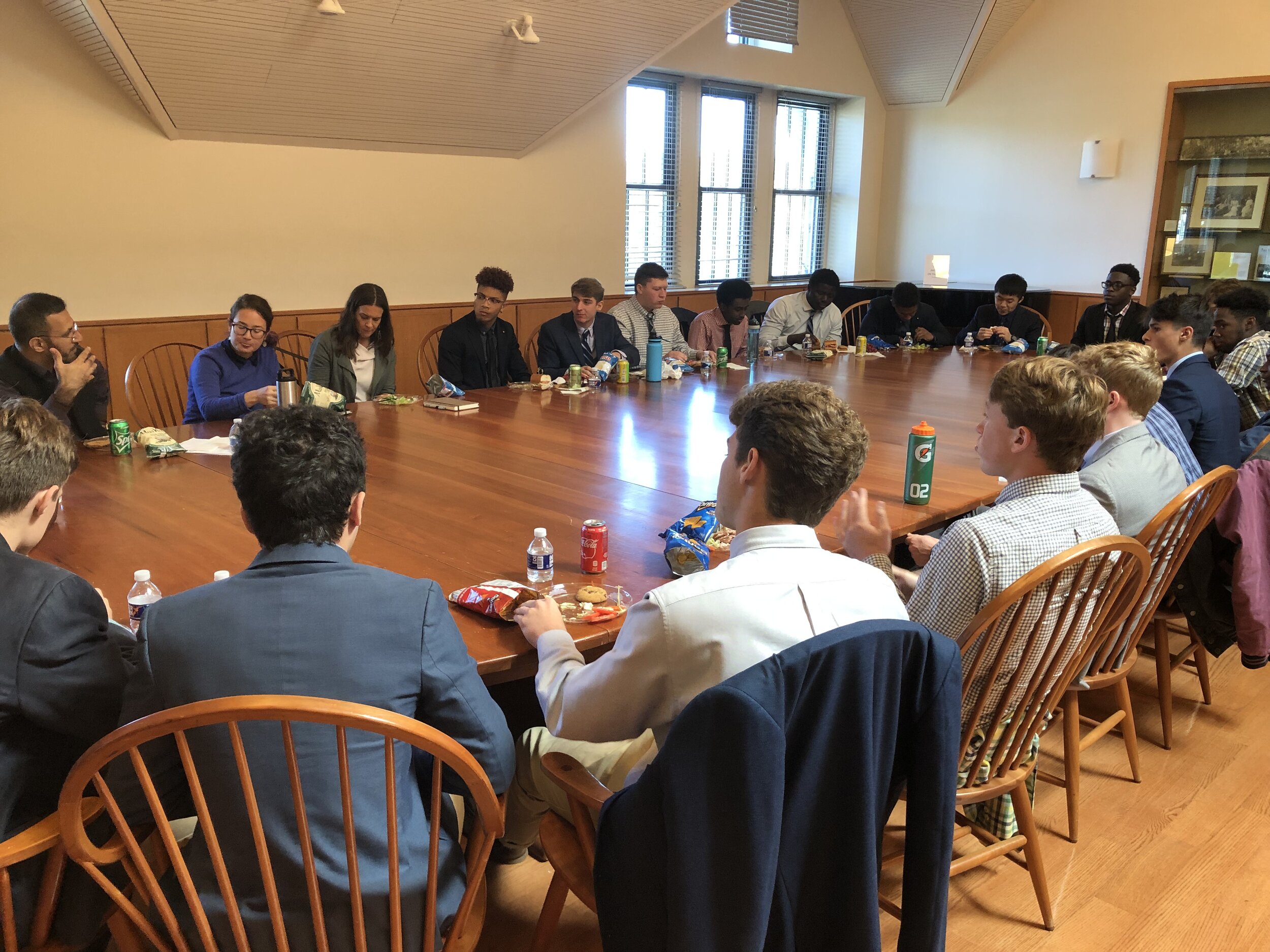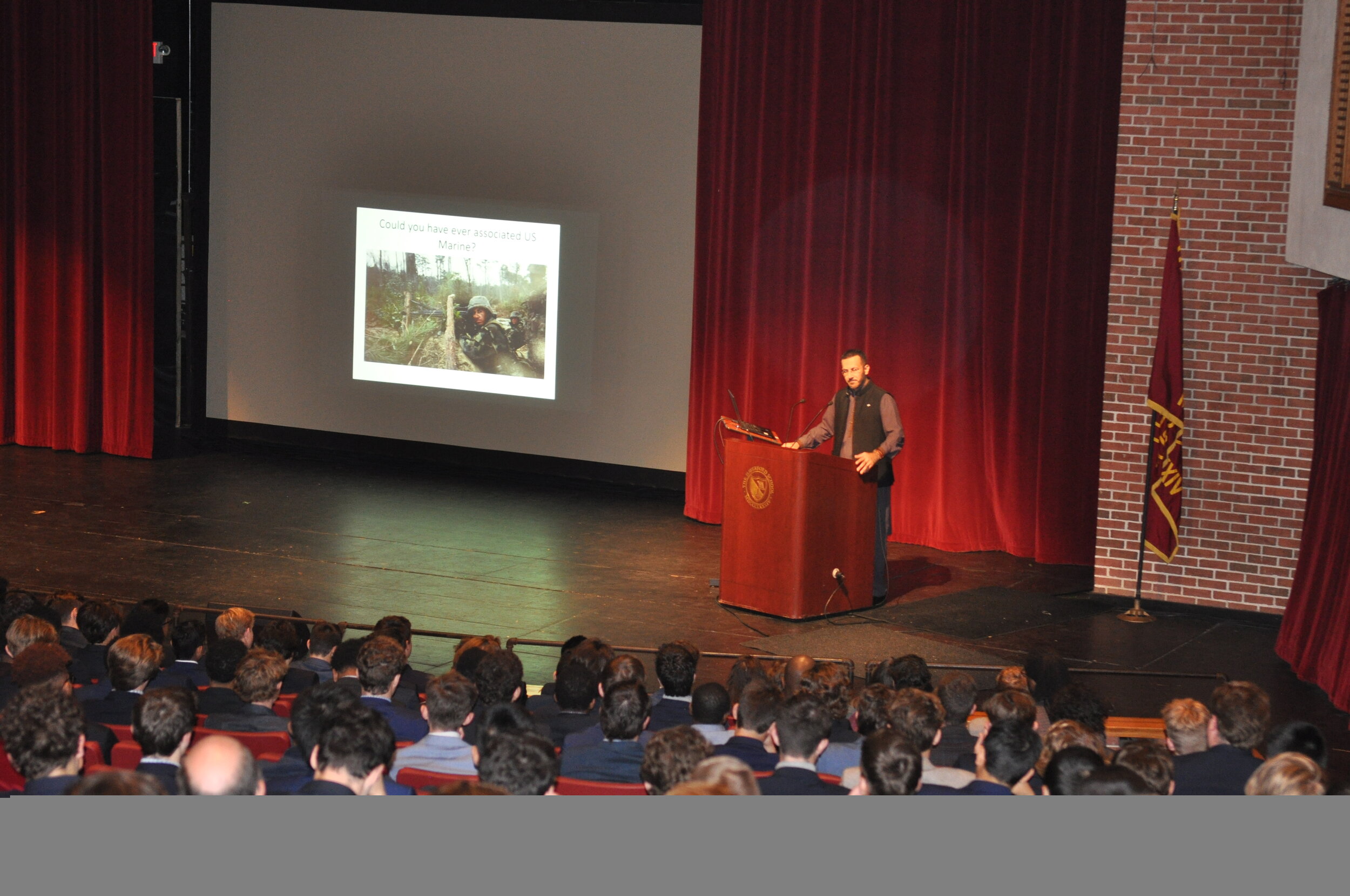It was a exciting day today as it was my first visit to an independent school. In fact, it was also the very first time I decided to wear traditional Pakistani clothing as part of the program. My main goal, to provoke thought and simply bust some of the prevailing stereotypes head on. I think to a great extent, I succeeded.
After addressing the approximately 500 students of the Upper School and conducting a short Q/A session, I proceeded to participate in a couple of smaller interactive group discussions with some of the students. All in all, it was an awesome day. The topic of my talk and our discussions largely centered around, “What Exactly Is An American?”
Check out the school’s media report about my talk here, as well as their official testimonial, which is below the slideshow on this page.
Mansoor’s visit was a smash success! From his Lecture/Q&A to the entire Upper School to his visitation to a Modern World History class to a Harkness table session with a large group of senior leaders from Signet Society, Student Council and the Diversity Alliance Leadership team Mansoor undoubtedly showed real stamina with an unwavering energy for truth-telling. Perhaps, more impressive was the intuitive ability he demonstrated to translate his lived experiences and spiritual practice into vignettes/anecdotes that inspired The Haverford School community to watch for those natural all too human moments when we have Automatic Negative Thoughts (ANTS) about others.
Mansoor challenged our school community to practice a courageous self awareness that operates in contradiction to the labels, prejudices and stereotypes that tear at the fiber of American society today. Shams opened space for our school community to consider the presense and visibility of Muslim identity in our community in ways that encouraged students, staff and faculty to notice our interactions with others and question our habits in service of bringing us closer to each other. He also helped us reflect on what it means to be American beyond the boxes that often limit human imagination around this construct. Mansoor highlighted the persistence of Muslim idenity as a foundational component of the United States: “You see Muslim Americans who are the descendations of other Muslim Americans have been here in Ameria since its very inception. They’ve even fought as far back as the armies of George Washington.”
Days later the impact of Mansoor’s visit lingers. We are still sharing our individual aspirations of how we want to be remembered by others and how much the choices we make for engaging with one another in community determines that legacy. One senior leader noted feeling “spiritually refreshed” by Mansoor’s visit. We are deeply grateful for the emotional modeling he provided our community. We are further encouraged to practice vulnerability and compassion with a heartfelt intentionality.
-Brendon Jobs
Director of Diversity and Inclusion

